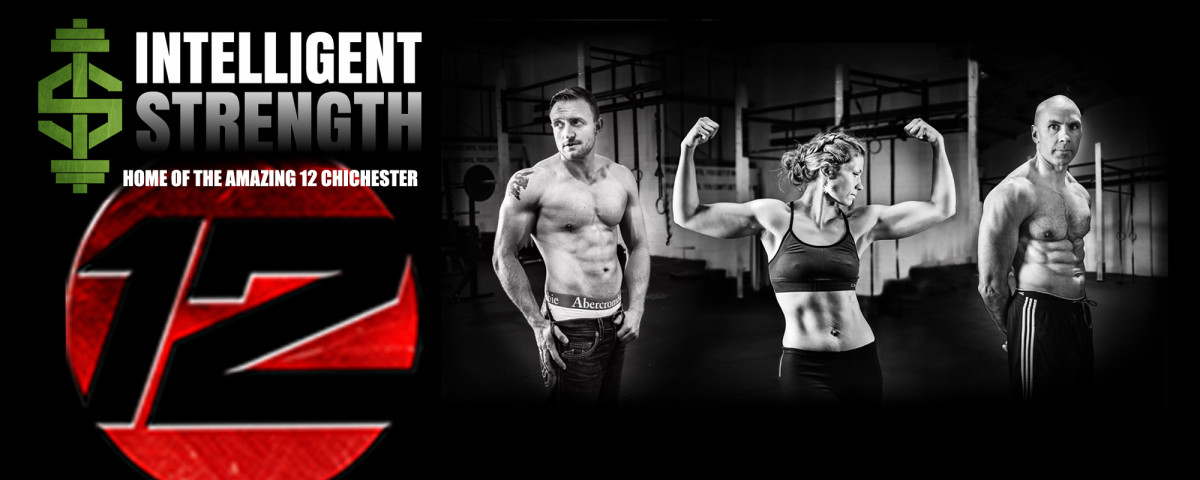
I THINK Sue Crabtree, back on her second week of the Amazing 12 Chichester after missing a week through being ill, is beginning to see why I enjoy and value lifting weights so much.
“I’m finding that, mentally, it’s fantastic,” she admitted.
Of course, weight-lifting and training is also working us in the physical realm, but it’s the thinking and concentration side that most people overlook or sell short.
As she’s new to working with the steel, Sue’s realising just how “switched-on” you need to be. While that may be frustrating and taxing for some of us, for me it’s one of the attractions.

Ian Barnett, also on his second week of the Amazing 12, has done weight-training previously and, especially as he’s trying to regain his fitness, appreciates the value of what it can do for him.
He missed a few days this week – one because he had a work conference in London pre-booked and the other because he felt really rough (onset of a cold). But Ian was itching to get back in the gym at Core Results even though he felt below par. And by the end that early morning (6am) session, he felt much better for it.
Lifting weights and exercising can be like meditation from the point of view it requires – for the best results and, more importantly, to avoid injury – that you focus your attention on the one thing you’re doing.

As an always-on-the-go-type person, Sue’s having to adjust to the different pace of training with weights and the way it’s done on the Amazing 12.
Runners often like to allow their minds to roam when they are out covering the miles and that’s one of the joys of running. But in the gym, with a weight on your back or in your hands, you can’t afford to go off into dreamland or admire your surroundings. That’s when you can get hurt.
Weight-training is great for Sue, in my opinion, because I believe we should choose movements and types of training that are the opposite of or offset the way we tend to live our lives and complement the strengths we already have.

If your life is fast-paced, stressed and hectic, go take a yoga class or, if you prefer the gym, pick movements that are slower, more deliberate and require patience. Do what you need and not what you want.
Technique-wise, I recognise how Sue’s starting to find her groove. It was all alien to her when she started. She admits that she’s someone who needs continual reminding (and I oblige), but, as the process of practice dictates, Sue’s requiring fewer pointers as the days go by. Her body is beginning to remember the new patterns.
As someone who has continually had some back pain, Sue declared she’s felt nothing since lifting weights except the feeling you get from working your muscles. She’s particularly pleased about that.
I’m noticing her becoming stronger, engaging her core muscles better and understanding what movements are challenging what muscle parts.

It’s the same for Ian. While he has a good grasp of technique, with Ian it’s a case of removing the rust.
“I thought about what you said last week,” he said. “Doing this [the Amazing 12] is a return to fitness for me, but making progress is the way to go [long-term].”
Ian has already shed half a stone. There’s definitely a difference in him and his appearance. He’s growing in strength and confidence. He already has his sights on a challenging cycle ride later this year.

Progress is what the Amazing 12 is all about. And it is achieved through practice. Methodical practice. Intelligently-constructed practice. It’s not about being perfect. Perfection is the aspiration – the end of the rainbow that we try to find, but never can lay our hands on.
Perfection has an end date. Then what? Practice is infinite. Perfection can rouse in us a fear of failure. Practice encourages it.
So replace any frustration with patience and attention and dedication and trust.
Practice doesn’t just apply to technique. Sue, for example, likes to stay within her comfort zone. She called it “lazy”, I think I said she was “cautious”.

Our mindset receives far more practice than our body. If your thoughts are not in alignment with your intentions, you are most likely impeding your own progress.
So I challenged Sue to move closer to the discomfort zone. The more you venture there, the less daunting it seems. Stay in the comfort zone – the part that’s really easy – and you can feel like you’ve been treading water for years. Nothing much changes.
The beauty of having a trainer is that he or she not only tells you what to do and, if competent, helps you to do it correctly, but holds you accountable. In addition, being on a program like the Amazing 12 means that, when executed properly, adaptations happen naturally.
As far as I’m concerned, as the coach, these two are warming well to the task. For me, it’s always more about the progress than perfection. If you are feeling daunted by a challenge, I encourage you to move towards and not away from it. Real growth comes from taking and completing those brave steps.




